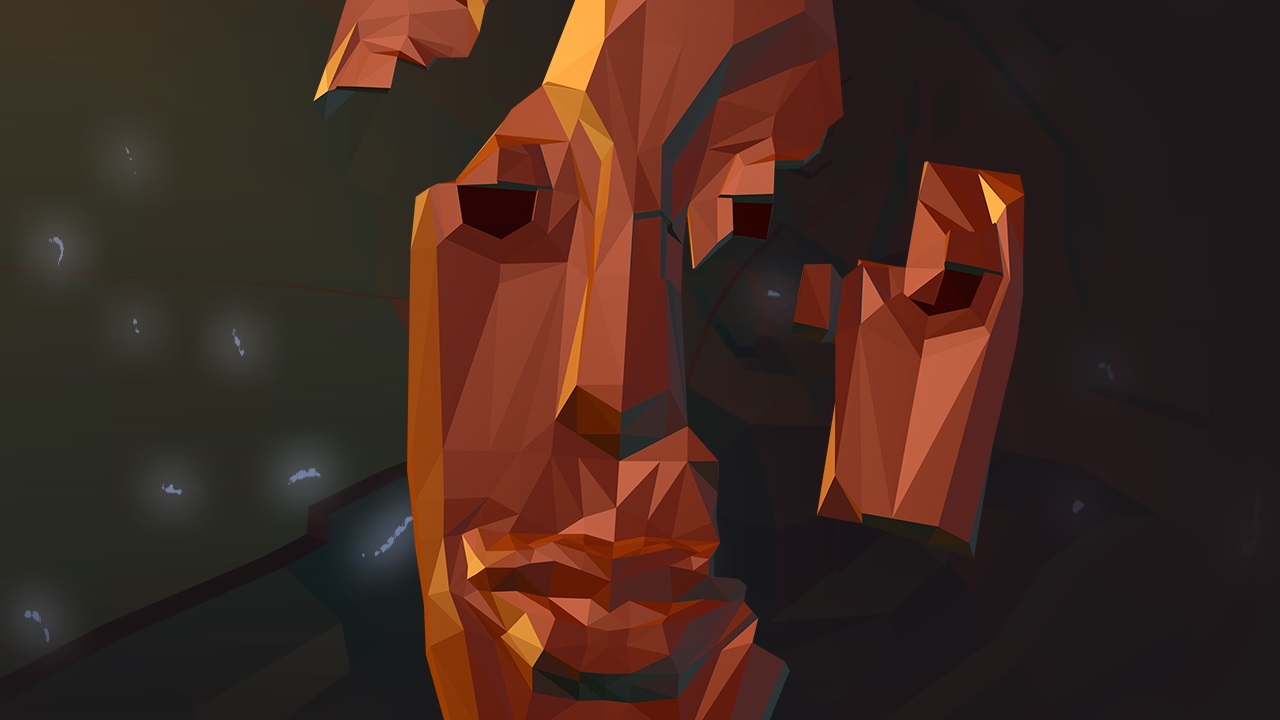Crest is a god game where you only interact with your followers indirectly with the help of issuing commandments; it’s a sandbox experience with focus on building a procedural story. The game is inspired by religion, history and philosophy.
But what motivated us to take the religious route in our game? I’ll try to explain.
Literal Liturgy
Religion has a very direct interpretation in most digital games I’ve played or read about. Characters in games believe unquestionably in God, and God is as real as rocks and trees. Mark Filipowich said in the Gamasutra article “Machine Gods: Religion in Games” that “Deities aren’t even really deities because they have a material existence and a direct influence on the world.”
That can be hard to grasp on its own. A deity must seem pretty real for a believer, right? I think Ursula K. Le Guin gives us a clue in her sci-fi book The Left Hand of Darkness:
“The unknown […]the unforetold, the unproven, that is what life is based on.
Ignorance is the base of thought. Unproof is the base of action. If it were proven that there is no god there would be no religion. […]But also if it were proven that there is a god, there would be no religion…”
What Ursula argues through her character is that faith needs the unknown. When I’m thirsty I don’t really need to believe in water in order for it to work, I just know it will quench my thirst. I think this is the approach most games take, that faith is seen as just another need that is unquestionably fulfilled by a “Buddy Christ” figure. Enter the God game, where God exists, expressing its divinity with levelling ground and burning bushes. Of course, this makes sense in a game context - how else can a player become a god without being literal? I think it’s natural that most God games have a hands-on approach, as it’s the most obvious route to take. But with Crest we wanted to express something else.
Sumerian Kings
The idea for Crest came about when I studied Mesopotamian history. Old cultures fascinate me; I love history, and so it was inevitable that what I read influenced what I want to make. I learned that during the first few hundred years of the Mesopotamian region it was ruled by the Sumerians. The first Sumerian kings saw themselves as stewards of the gods. They ruled over their city states and made the cities prosper, in order to serve their deities.
But gradually throughout the centuries kings were elevated to gods after death. It didn’t take long before living kings started to proclaim that they were in fact divine themselves.
That was an epiphany for me, that interpretation plays such a big part of religious evolution. Sure, religions evolve over time, that’s hardly a secret. We have the old and the new testament, Zen Buddhism is not the same thing as Buddhism. We get it. But I started to see the motivations behind it. I thought I saw a capsulated red thread between the Sumerian Kings and human ambition. I wanted to express that idea in a game. I felt that this was a missed opportunity to explore what religion means in a game about playing god. To explore the less literal side of divinity. I felt that being God could be about something more than being a landscape architect. I thought it would be interesting to explore the “Problem of evil”: why can there be suffering and evil in the world if God (or gods) is omnipotent and good?
Perhaps God’s power isn’t absolute, and humans actually put words into God’s mouth. That’s where the agnosticism comes in; maybe there is a god or maybe there isn’t. I think that what matters in the end is if people believe in something. The same religion could hypothetically form if a Sumerian king wrote the commandments, or if it was actually a god who proclaimed them. If we can’t prove a god’s existence we can never be sure, right? Of course, the player exists as a god in our game, and their interaction plays an important role, but we want to show the player that the people’s belief is more complex.
Parents Need Children
After I pitched the idea to the lead designer, Oskar, we took the concept further (and later on iterated it with the rest of the newly formed team). We saw a shared concept with that of parenthood. If we played with the idea that God’s power isn’t absolute, perhaps God is more like a human parent? Although Roland is the only one in the team who currently has children we’ve all experienced on how it feels to be dependent on parents. We asked ourselves: do parents need their children more than their children need them?
We wanted the player to get a connection to the people from the lens of a parent, reflect over what they want that their children to achieve. We asked ourselves what motivates real people to have children. Do they want to create a clone of themselves? Do they want a nice retirement plan with young strong helpers? Do they want to unconditionally give love to their offspring without expecting anything back? There are perhaps as many motivators as there are parents.
Another thing we remembered from our childhoods was that some rules are never truly set in stone. As most children probably did we tried the artificial boundaries of our upbringing. And here’s what I think is the interesting part: that for many parents, you might need to let the children get away with things occasionally. Perhaps the offspring are sometimes right, and increasingly so as they grow wiser. That’s where religious dogma and reinterpretation plays in - perhaps humans know better than God sometimes, or maybe they’re just delusional.
But the fact remains that you might need to play with their rules in order to get what you want in the end. And after time you might have grown to become a different god than what you were when you got your followers.
Pragmatic God
One thing we realized during early development that we didn’t anticipate showed itself when the prototype was out: the fact that if we ordered every follower to become alike, they quickly died off since they would all react in the same way. It’s as in the words of the fictional character Motoko from [Masamune Shirow’s legendary Manga] Ghost in the Shell would say that “It’s simple: Overspecialize, and you breed in weakness. It’s slow death.”
In our case, a quick one!
It might sound odd that we didn’t formulate this when we came up with the mechanics, but the emergent game system in itself showed us the possible dangers of being too dogmatic and static.
I love procedural games; they surprise you as you make them. In this case, our game “showed” us to give the player the choice if they want to over specialize or not. And we’ve tried since then to make the game more modular, where you can differentiate or specialize, and then add to that an evolving world that forces the player to change their strategy. I think it’s impossible to play Crest for longer sessions without showing one ounce of pragmatism.
I think this is one of the most interesting things you will be able to explore more as Crest develops - there isn’t objectively one correct way to view and react to the world in our game.



